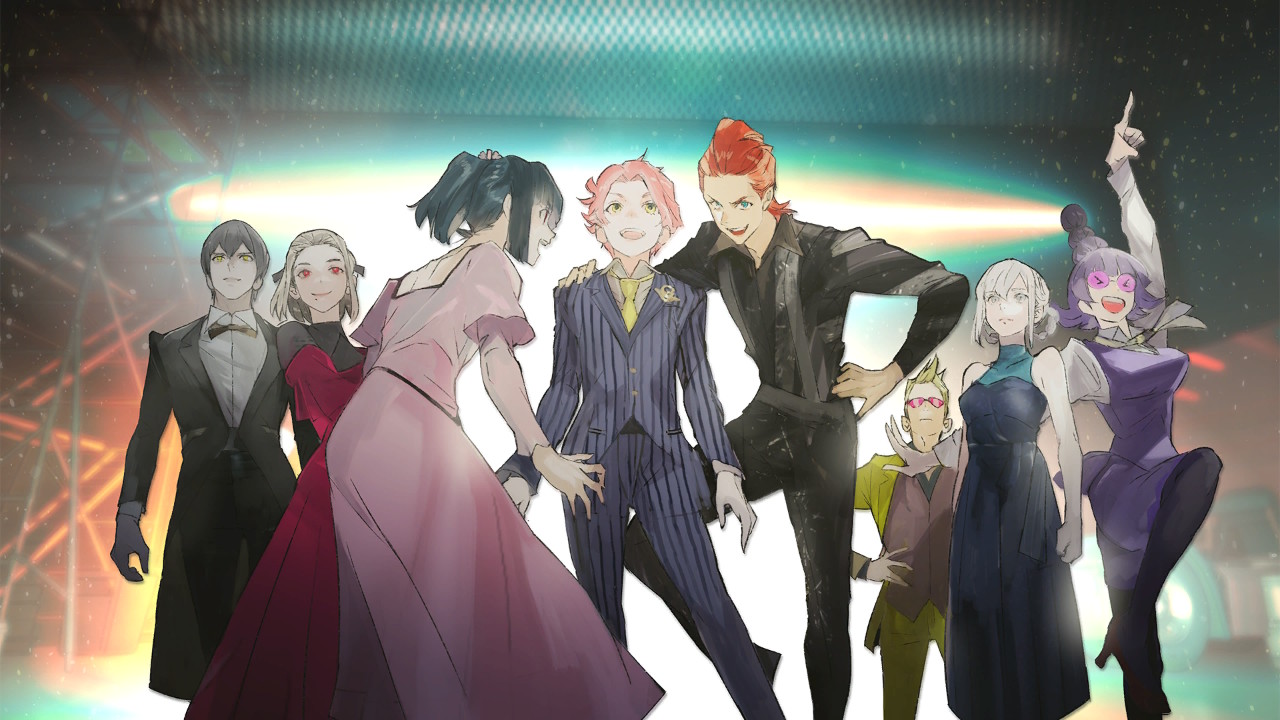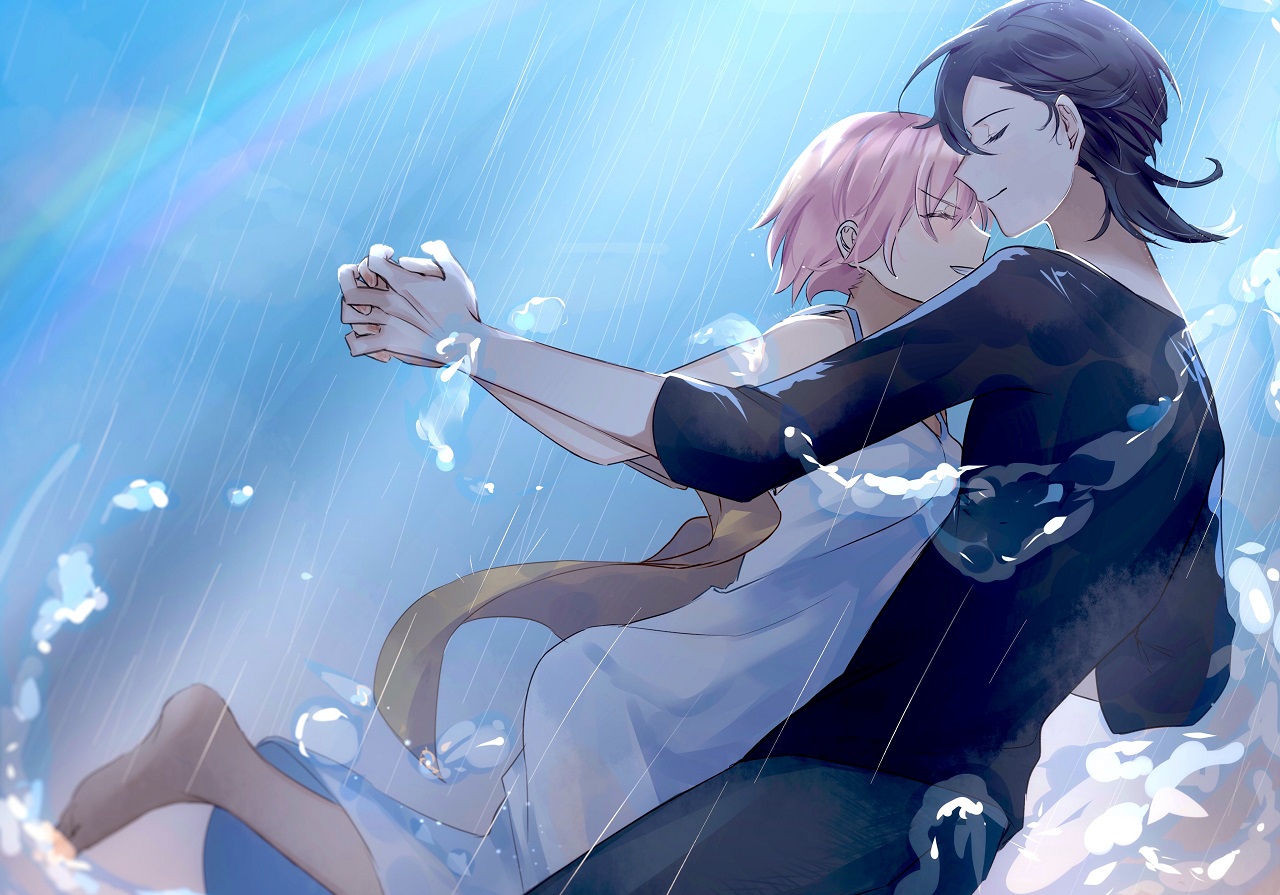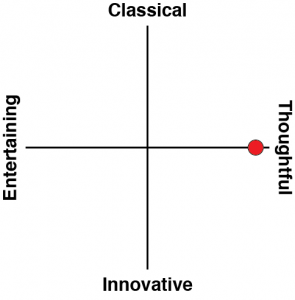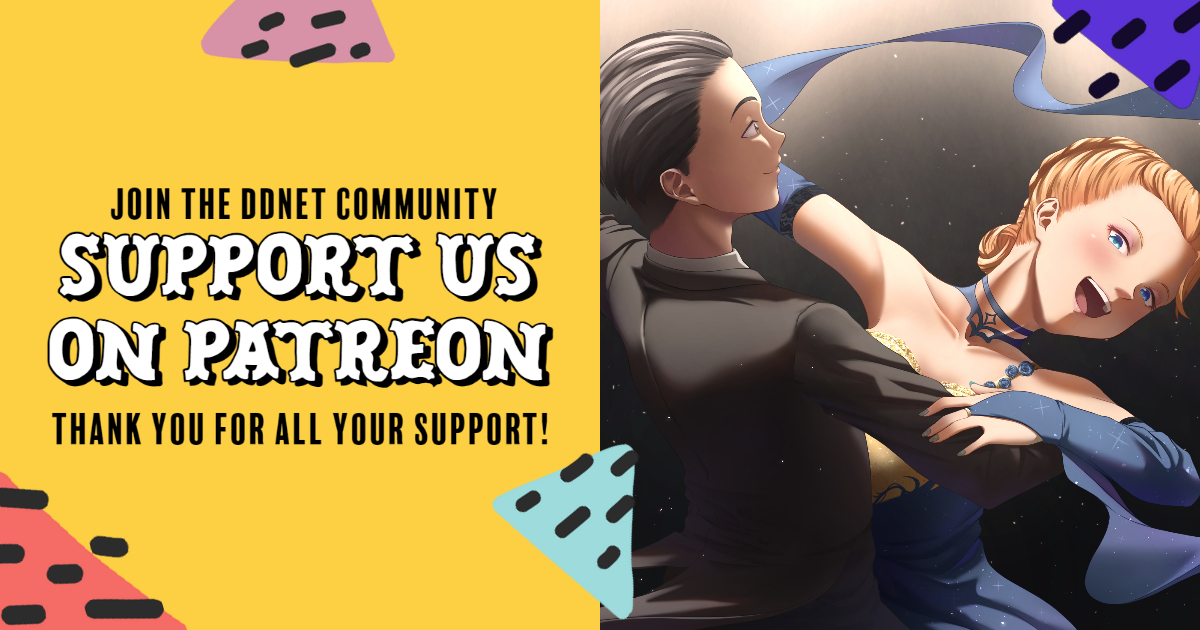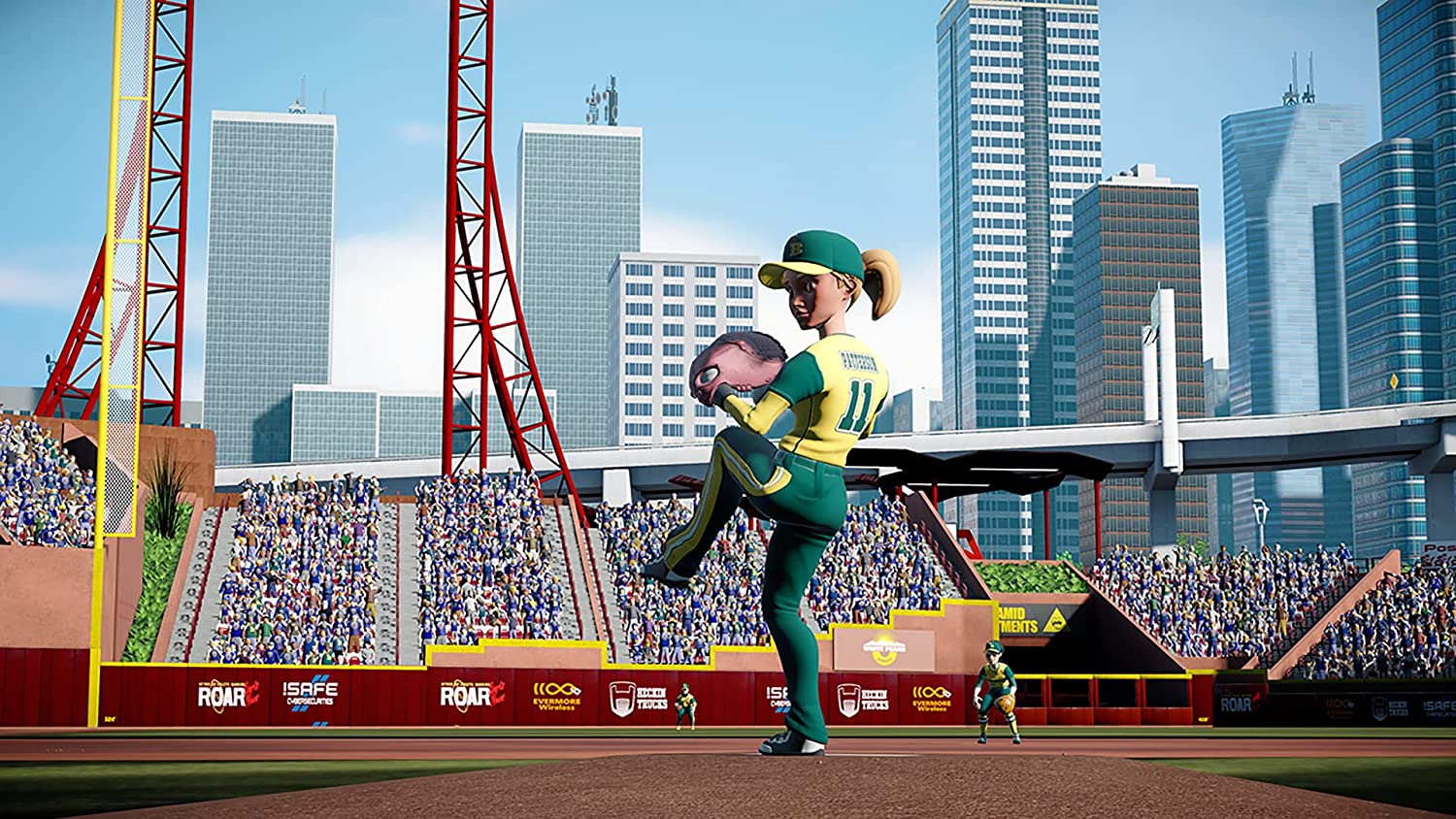Have you ever played a game that feels like it was designed specifically for you? Jack Jeanne is just that to me. In fact, I’m working on a visual novel project myself, and I’m shocked at just how thematically and structurally similar it will be to Jack Jeanne (at least, the way I’ve got it planned in my head). Mine’s about dancesport and this is about theatre (including ballet and opera), but ultimately it’s about “high arts” and performance, and the people that are driven to these lifestyles and passions. As a mix of rhythm game, management/relationship building sim and visual novel, and with a focus on the inner workings of the performing arts, Jack Jeanne is truly a rare treat. I mean, how many other games have ballet and opera as subjects? Not enough, and this highlights just how compelling the subject matter can be to video games.
Jack Jeanne’s story tracks a girl who is desperate to make it as a performer. Purely by chance, she catches the eye of the headmaster at the nation’s most prestigious performing arts school. The only problem is that this school is for boys and boys alone. So, in order to chase her dreams, she needs to make like a Shakespearean comedy, strap down her chest and conceal her gender from her classmates and teachers. Because the headmaster takes a risk in letting her in, he presents her with a single demand: she must become a superstar and top graduate of the school.
Thankfully, her deception is made slightly easier because there are feminine roles on the stage, and the school is no stranger to highly feminine boys that it trains to play the female roles in theatre productions. These “Jeannes” do look like women (especially with stage makeup on), so no one questions our heroes’ gender (well, at first). So she settles into school life, learns how to act like a girl from a bunch of boys, and trains like mad to be the most spectacular Jeanne the school has ever seen.
It’s easy to dismiss this as a cross-dressing fantasy, and perhaps even cynical, given the current cultural war dramas that a bunch of uneducated ignoramuses are waging against drag performances… but of course, what Jack Jeanne is actually doing is not drag, but rather depicting something of deep cultural significance in Japan. Males playing female roles – Onnagata – are specialists in the unique challenges of doing so, and they spend years honing the craft. To this day most Kabuki theatre features an all-male cast. Though women can (and do) now appear in performances, they were originally banned from the stage way back in 1642, and that lengthy tradition has stuck as something that, aesthetically and thematically, is important to the entire art form.
Of course, this is an otome game, so the protagonist also starts to develop feelings for her classmates as the relationship deepens. Hilarity often ensures. At the same time, she has consistently cast in lead roles in frequent productions the classes put on (this is how they’re assessed and ultimately graduate), so she needs to spend a lot of time training her singing, dancing and acting skills. It’s a busy schedule she keeps to, to be sure, and the vivid and active academy experience she goes through is really brought to life thanks to some great character writing, excellent dynamics between the various personalities, and the constant deadlines that you’re working towards.
Given that otome visual novels generally have limited interactivity, I was surprised with just how much “gameplay” there is in Jack Jeanne. You need to organise the daily schedule of activities for the protagonist. This means spending time training in six different disciplines to “level them up”, while also making sure that she doesn’t get so exhausted that her training efforts fail. Because all work and no play make this particular Jeanne a dull girl, you also need to find time on weekends for her to go out and be social with her classmates. There are certainly more complex “life simulation” management games out there (any of the Princess Maker-likes, for example), but as a streamlined mechanic, it works within Jack Jeanne, and ensures that you’ve got plenty to think about between the narrative beats.
Meanwhile, come performance day, there are two different rhythm games that you’ll want to perform to perfection. One represents dance, and the other represents singing. These, too, are relatively simple compared to dedicated rhythm games – Hatsune Miku has nothing to be worried about sitting at the top of that particular pedestal. However, they’re well made and supported by some nice music that you’d be happy to listen to outside of the game. I just would have liked it if the mechanics of these minigames had been a little less abstract. The singing minigame does do a decent enough job of capturing the essence of a sung voice as it moves up and down in range. However, you’d have no idea you were simulating dancing if there wasn’t the actual dance being animated behind you in the background as you play. That being said, it is incredibly difficult to capture the complex movement of dancing when you’re working with buttons and an analogue stick, so I got over my initial disappointment that Jack Jeanne doesn’t really have dancing in it quickly enough.
These minigames don’t come on too often, as there are (in-game) weeks of training between performances, but they do act to add a nice highlight to work towards and look forward to. As another nice touch that makes these performances memorable and dramatic highlights, each of the plays represented in the game is a full performance from end-to-end, and you do actually unlock the scripts to read, in full, after watching the associated performance in the game. They’re not the longest examples of theatre, but they are full plays. I don’t know what you might want to do with those scripts (it would have been awesome to be able to somehow send them to an email address, print them out, and then get your theatre group together to put on your own productions), but being able to read through them from the in-game gallery does give the whole experience an additional literary quality, which helps give the game its almost unique tone and vibe.
For those that may have been concerned, there’s nothing pretentious about Jack Jeanne. I know it’s very easy to see opera, artistic dance and theatre as these “high art” pursuits that are exclusionary in tone (and that’s not helped by the general behaviour of those within those artistic fields), but Jack Jeanne is an entirely relatable and down-to-earth story of following an all-consuming passion for theatre, and finding kinship and perhaps even a soulmate along the way. The cross-dressing deception isn’t overly used for comedic purposes, thankfully, and actually fades into the background quickly enough. It’s there as a threat to our protagonist, since she’ll be instantly expelled from the academy if her true identity is discovered, but I went in expecting all kinds of change room near-miss “jokes”, and was impressed by the maturity and restraint that was instead shown.
Jack Jeanne has a gorgeous aesthetic, though it’s one that takes a while to become accustomed to. When you compare it to one of Idea Factory’s pristine and gallery-standard visual novels, the lack of detail in the characters is particularly noticeable. However, across the 90(!)-odd CG arts that you’ll encounter through Jack Jeanne, you’ll become absorbed in what is an ethereally beautiful art style that really captures the elegance of dance and the essence of the stage. The fully animated dance scenes are the absolute highlight, though. Again, they’re gorgeous, and the choreography shows a genuine love for dance from the visuals team.
As Terrence Mann once said: “Movies will make you famous; Television will make you rich; But theatre will make you good.” We have plenty of games that strive to be cinematic, or capture the qualities of a serialised TV series. What we don’t have are many developers willing to tackle the challenge of theatre. This is partly because the crossover between theatre and video gaming audiences is probably smaller than with, say, Marvel and video games, but it’s also partly because it’s so difficult to represent theatre convincingly. If your effort to write like Chekov falls flat, it’s going to be even more embarrassing to witness than all the modern blockbusters that try to emulate Joss Whedon’s approach to writing. Something like Forspoken is, ultimately less of a creative risk than Jack Jeanne. This thing lives and dies by its understanding of the power and impact of writing for theatre.
Thankfully, that didn’t miss the mark. Jack Jeanne is a celebration of the finest qualities of theatre, held within a visual novel that’s enjoyable to read. It has some distinctive, evocative art, and some minigames that help make the overall experience even more engaging. Yes, sure, future generations might not study these plays in school, as they do Shakespeare and Chekov, but the plays-within-the-game framing allows the writers to explore a love for the form, and that passion and respect infuses every second of the experience.
